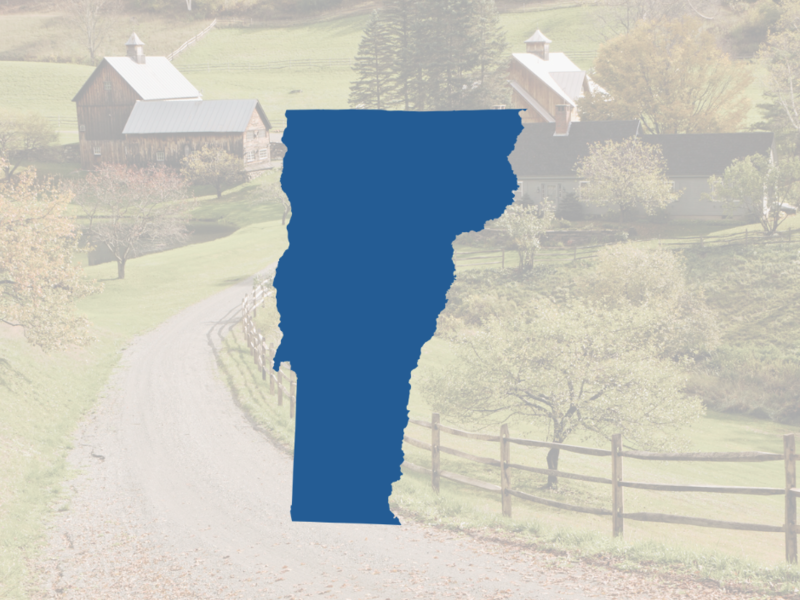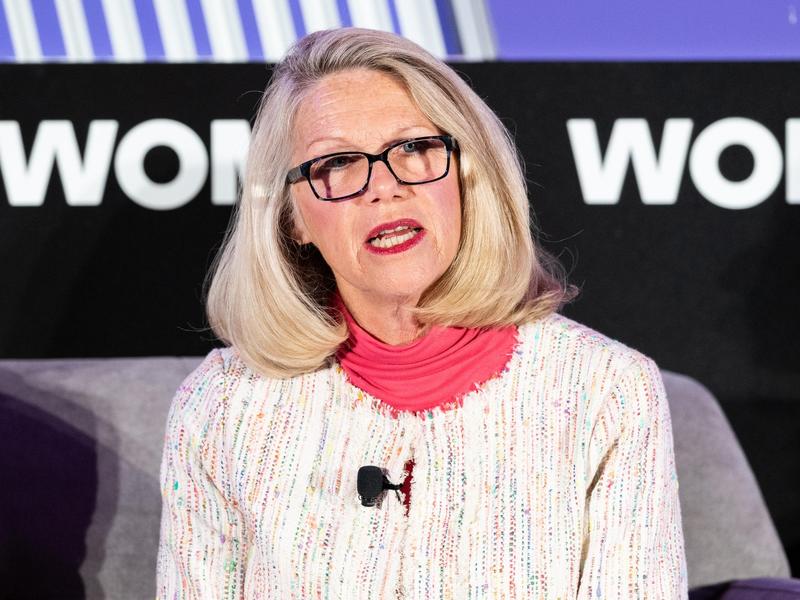
Democrats have to be happy and relieved by the results of Tuesday's primaries: they appear to have avoided getting "locked out" of California's top-two primaries, advancing candidates to the November ballot in all of the seven GOP seats they're targeting (although in several districts, they didn't avert catastrophe by much). And in New Jersey, Democrats' top recruits comfortably won their primaries in two key GOP-held open seats.
Did Democrats' best possible candidates win everywhere in California? With many more votes still to count, probably not. But beggars can't be choosers, and had Democrats been presented this set of outcomes a few weeks ago, they gladly would have taken it.
The DCCC deserves credit for the strategic investments they made to prevent nightmare "shut out" scenarios, particularly in Orange County. In the 39th CD, their support for Navy veteran/philanthropist Gil Cisneros helped him advance by five points. In the 48th CD, their boosting of minor GOP candidate John Gabbard (3.5 percent) may have helped stop two Republicans from advancing.
In the San Diego 49th CD, left open by GOP Rep. Darrell Issa, the DCCC's attacks on Assemblyman Rocky Chavez helped drive GOP voters to front-running Board of Equalization Chair Diane Harkey, who came in first place in the all-party primary with 26 percent. But that also ensured a Democrat would advance to November by coming in second, and indeed environmental attorney Mike Levin advanced.
Republicans had some bright spots too. First and foremost, Republican attorney John Cox advanced in the governor's race with a key endorsement from President Trump. Had the GOP been shut out of both top statewide races, Republicans turnout in the fall could have been depressed. And, their successful recall of Democratic state Sen. Josh Newman demonstrates the potency of the gas tax issue headed for a fall referendum.
Furthermore, Republicans got the female candidates they wanted in both vulnerable open seats: Harkey in the San Diego 49th CD and Assemblywoman Young Kim in the open Orange County 39th CD. And in some districts, they also got the Democratic opponents they wanted: for example, pro-single payer consumer advocate Katie Porter narrowly advanced in the 45th CD, potentially throwing GOP Rep. Mimi Walters a lifeline.
Some observers have adopted a "blue wave has crested" narrative based on Tuesday's turnout, arguing GOP candidates combined for a majority of primary votes in all 14 GOP-held seats except the open 49th CD. For example, GOP Reps. Steve Knight (CA-25) and Mimi Walters (CA-45) both currently sit at a healthy-looking 53 percent of the all-party primary vote, despite being top Democratic fall targets.
But this take ignores that in most districts, up to a third of the vote remains uncounted, and historically, California's late-returned/counted ballots have skewed Democratic. In addition, California's June primaries typically bring out an older, whiter and more GOP electorate than the much larger November electorate. For example, in 2012, GOP Rep. Mary Bono Mack took 58 percent in the June primary but still ended up losing in November.
Tuesday's primary also continued the dominant performance of female candidates in Democratic primaries. So far in 2018 Democratic primaries featuring at least one woman, one man and no incumbent on the ballot, women have been the top vote-getters 59 of 84 times (70 percent). Democrats are particularly excited about the November prospects of Katie Hill (CA-25) and Mikie Sherrill (NJ-11), who both prevailed on Tuesday.
Meanwhile, in GOP primaries featuring at least one woman, one man and no incumbent, women have been the top-vote getters only 38 percent of the time. But Republican women did have a banner night on Tuesday: Young Kim (CA-39), Diane Harkey (CA-49) and Yvette Herrell (NM-02) were all winners in districts poised to be competitive this fall, defeating well-funded male candidates.
Tuesday's results don't change our overall outlook of a Democratic gain between 20 and 40 House seats (they need 23 for control). But we are changing our ratings in five districts: three in Democrats' direction and two towards Republicans. View our full ratings here.
Rating Changes
- CA-21: Valadao | Lean R to Likely R
- CA-49: OPEN (Issa) | Toss Up to Lean D
- CA-50: Hunter | Likely R to Solid R
- NJ-02: OPEN (LoBiondo) | Lean D to Likely D
- NJ-11: OPEN (Frelinghuysen) | Toss Up to Lean D
Updated Bottom Lines
CA-10: Jeff Denham (R) - Central Valley: Modesto, Tracy
Toss Up. Denham's support for immigration reform has allowed him to continue winning reelection in this moderate, diverse Modesto seat that Hillary Clinton won by three points. But his advocacy of a discharge petition to force a House vote on a compromise bill may have driven conservatives into the arms of pro-Trump, pro-wall Turlock Councilman Ted Howze, who nearly "shut out" a crowded Democratic field on Tuesday.
With around of the vote still outstanding, Denham advanced with 37 percent, Democratic venture capitalist Josh Harder is second with 15.7 percent and Howze is in third with 14.4 percent. Five other Democrats combined for 32 percent. It's not final, but because late-counted ballots typically skew Democratic, Harder's 850 vote lead is probably durable enough to prevent Howze from sneaking into second place.
Even if Harder does advance, Republicans are optimistic that Denham can paint him as out of touch with the district. Harder grew up in the district in Turlock, but the years he spent in elite San Francisco finance circles could turn into a liability. Money shouldn't be a problem for Harder, though: he raised $1.4 million through the pre-primary period. This looks like the most competitive race in the Central Valley.
CA-21: David Valadao (R) - Central Valley: Hanford, parts of Bakersfield
Likely Republican. To Democrats' immense frustration, Valadao continues to thrive in a 74 percent Latino district Hillary Clinton won 55 percent to 39 percent. Initial primary returns show the pro-immigration reform incumbent rancher walloping Democratic energy businessman T.J. Cox 64 percent to 36 percent. That could narrow a bit as more ballots are counted, but the margin suggests Valadao's popularity may be wave-proof.
Democrats note that Cox has $442,000 on hand (including a $257,000 personal loan) and hasn't had to start communicating with voters because he didn't have any top-two primary concerns. But he doesn't live in the 21st CD (he switched from the crowded 10th CD to run here), and Republicans will highlight IRS liens against him for unpaid taxes. Latino turnout tends to plummet in midterms here, compounding Cox's challenge.
CA-25: Steve Knight (R) - Northern LA County: Santa Clarita, Palmdale
Toss Up. Democrats are elated that anti-homelessness non-profit executive Katie Hill advanced to the general election, edging out attorney/2016 nominee Bryan Caforio 20 percent to 18 percent (incumbent GOP Rep. Steve Knight took 53 percent). Knight had survived in 2016 by painting Caforio as a slick downtown LA lawyer and carpetbagger. Hill, 30, grew up in the district and owns guns and horses.
Even several Republicans admit Hill, a first-time candidate whose first ad featured her climbing a vertical rock face, presents a problematic contrast for Knight, a longtime fixture in northern LA County politics known for his blunt style. Hillary Clinton carried the seat 50 percent to 43 percent in 2016, and Hill has already raised almost $1.4 million with the help of EMILY's List. In this environment, Knight may be the slight underdog.
CA-39: OPEN (Royce) (R) - Northern Orange County: Fullerton, Yorba Linda
Toss Up. Both parties got what they wanted here: moderate Republican Young Kim, a former Assemblywoman and former aide to retiring Rep. Ed Royce, took first place in the primary with 22 percent, while Democrats avoided a dreaded shutout as Navy veteran/philanthropist Gil Cisneros advanced with 19 percent and second place. Pro-Trump Republican activist Phil Liberatore came in third place with 14 percent.
This professional, melting pot Orange County open seat (34 percent Latino, 29 percent Asian) voted for Hillary Clinton 51 percent to 43 percent and should be a terrific Democratic pickup opportunity. But Republicans actually like the contrast between a Kim, a female Korean-American immigrant with the popular Royce's backing, and Cisneros, whose claim to fame is having won a $266 million MegaMillions jackpot in 2010. It's a Toss Up.
CA-45: Mimi Walters (R) - Inland Orange County: Irvine, Mission Viejo
Lean Republican. This wealthy southern Orange County district voted for Mitt Romney by 12 points in 2012 and for Hillary Clinton by five points in 2016. But Walters, a former stockbroker, will be tough for Democrats to dislodge -- particularly after UC-Irvine law professor Katie Porter, a protege of Sen. Elizabeth Warren, edged out more centrist fellow professor Dave Min 20 percent to 17 percent for the right to face her in November.
Some Democrats believe Min, a self-styled "New Democrat," would have been better-suited to attack Walters's vote for the GOP tax bill, which included changes to the SALT deduction that could hit plenty of wealthy 45th CD voters hard. But Porter had key support from progressive groups and EMILY's List. Republicans are excited to highlight Porter's support for single-payer healthcare. Walters remains a slight favorite.
CA-48: Dana Rohrabacher (R) - Coastal Orange County: Huntington Beach
Toss Up. Democrats are breathing a huge sigh of relief that they didn't get shut out by two Republicans here, but they're still not sure which Democrat will advance. Rohrabacher took first place in the primary with 30 percent, but stem cell researcher Hans Keirstead and real estate businessman Harley Rouda are essentially tied at 17 percent with an estimated 55,000 ballots left to count. GOP attorney Scott Baugh trails in fourth with 16 percent.
According to an Orange County source, about two thirds of the outstanding votes were mail ballots dropped off at polls on Election Day, which should benefit Rouda. Days before the primary, the DCCC endorsed Rouda amid questions about whether Keirstead once struck a female student at his UC-Irvine lab. The effect on the vote was noticeable, because Rouda performed much better with Election Day votes than absentee ballots.
Most Democratic strategists are desperate for Rouda to prevail to avoid the awkwardness of the DCCC having to mend fences with Keirstead after it essentially turned its back on him. Either way, Rohrabacher is in deep trouble in November. The 30-year incumbent's favorable rhetoric towards Vladmir Putin and Julian Assange have Democratic voters energized in a seat Hillary Clinton won 48 percent to 46 percent.
CA-49: OPEN (Issa) (R) - Northern San Diego County: Oceanside
Lean Democratic. Both parties were relieved to advance to the November ballot from the crowded primary field to replace retiring GOP Rep. Darrell Issa. GOP Board of Equalization member Diane Harkey came in first with 26 percent. Democratic environmental attorney Mike Levin appears to have advanced with 17 percent. Two other Democrats, Sara Jacobs and Doug Applegate, finished third and fourth respectively.
Harkey, the former mayor of Dana Point, benefited from being the only Republican to have run district-wide before and from Democrats' effective attacks on GOP Assemblyman Rocky Chavez. Meanwhile, some Democrats are relieved that Jacobs didn't advance; the 29-year old granddaughter of Qualcomm founder Irwin Jacobs had been chided in the press for embellishing her role as a contractor at the State Department.
San Diego area Republicans warn Harkey is an experienced local politician and shouldn't be underestimated. But this open seat voted for Hillary Clinton 51 percent to 43 percent in 2016, and this is the only one of California's 14 GOP-held seats where Democrats combined for a slight majority of the top-two primary vote. Levin is a narrow favorite and this contest moves back to the Lean Democratic column.
CA-50: Duncan Hunter (R) - Inland San Diego County: Escondido, Santee
Solid Republican. Democrats were hoping for a fall match up between Hunter, who is under a federal grand jury investigation for misuse of campaign funds, and former Navy SEAL Josh Butner in this conservative, military-heavy district. Instead, more liberal former Labor Department official Ammar Campa-Najjar advanced to November with 16 percent to Hunter's 49 percent. Butner came in fourth with 13 percent.
Campa-Najjar's service in the Obama administration will be a liability in a district President Trump carried 55 percent to 40 percent. Born to parents of Mexican and Palestinian descent, Campa-Najjar has a fascinating life story but probably needs the grand jury to return an indictment against Hunter before November to have any chance. Until that happens, this race is in the Solid Republican column.
NJ-02: OPEN (LoBiondo) (R) - South: Cape May, Atlantic City, Vineland
Likely Democratic. Democratic strategists got what they wanted when moderate state Sen. Jeff Van Drew demolished more liberal opponent Tanzie Youngblood in the primary, 55 percent to 19 percent. Van Drew, a dentist, has been an overwhelmingly popular legislator from Cape May County, the most Republican part of the 2nd CD. He's raised $631,000 and has backing from labor groups that supported LoBiondo for years.
Meanwhile, the 2nd CD is probably Republicans' most glaring recruitment failure of the cycle. Attorney and conservative activist/talk radio host Seth Grossman topped a badly divided GOP field with 39 percent. Grossman served one term as an Atlantic County freeholder in 1988 and has raised just $11,000. Trump carried the district, but Republicans are all but waving a white flag and this is now one of the likeliest Democratic pickups in the country.
NJ-11: OPEN (Frelinghuysen) (R) - North central: most of Morris County
Lean Democratic. As expected, former Navy helicopter pilot/federal prosecutor Mikie Sherrill dominated the Democratic primary with 78 percent of the vote. The first-time candidate has raised a staggering $2.8 million and looks poised to take advantage of the rapid shift of this white-collar district away from Republicans. Trump carried it 49 percent to 48 percent in 2016, but Democratic Gov. Phil Murphy carried it narrowly in 2017.
On the GOP side, five-term state Assemblyman Jay Webber beat three opponents with 40 percent, an underwhelming share for a former state party chair who is known as a stalwart conservative. Webber had $224,000 on hand at the end of May and will need to play catch up, as many North Jersey corporate power brokers who long supported Appropriations Chair/Rep. Rodney Frelinghuysen have begun to treat Sherrill like the incumbent.
Republicans are optimistic they can link Sherrill to Democratic ticket-leading Sen. Bob Menendez, who was severely admonished by the Senate Ethics Committee. But there are plenty of votes Democrats can use to portray Webber as a movement social conservative out of step with suburban voters. For now, the momentum is on Sherrill's side and the races moves from Toss Up to Lean Democratic.









Subscribe Today
Our subscribers have first access to individual race pages for each House, Senate and Governors race, which will include race ratings (each race is rated on a seven-point scale) and a narrative analysis pertaining to that race.